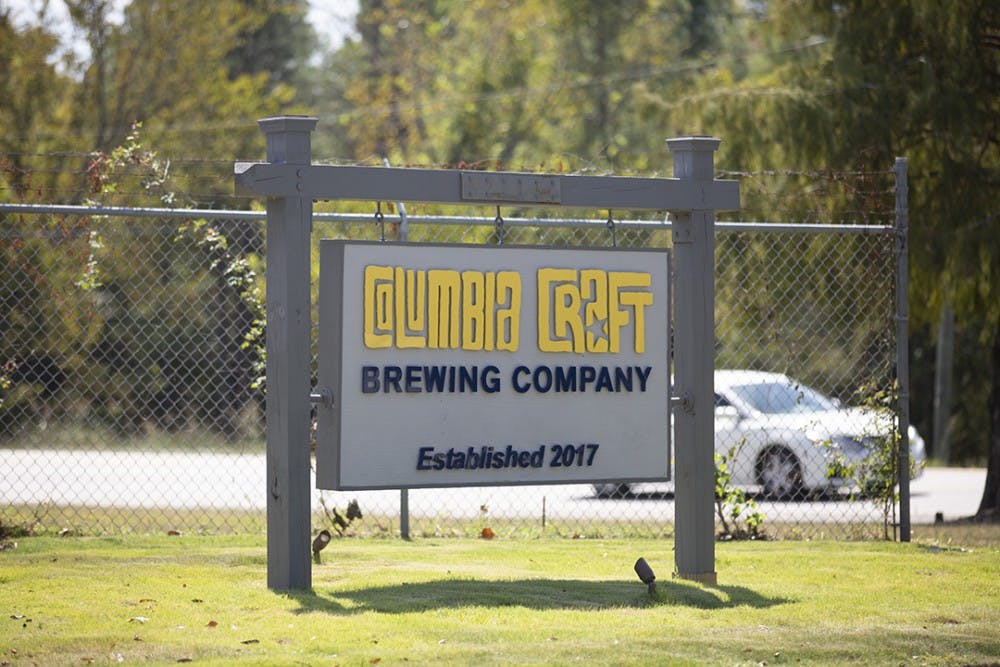When Conquest opened its doors as Columbia’s first brewery in 2012, it simultaneously introduced a new market to the area. Nearly a dozen businesses would follow in its tracks, and within a short period of time the city was crawling with a brand new craft beer scene.
But Columbia had a lot of catching up to do.
“Columbia, I hate to say it, but we’re 10 to 15 years behind,” said Andrew Strauss, Columbia Craft’s part-owner. “We’re like, ‘Man, Columbia needs some really cool, drinkable stuff.’”
With a new market came new opportunity: Each of the city’s local brewers had a hand in shaping the area’s brew culture.
Mike Tourville, the owner of River Rat, was at the forefront of this new business trend. In 2013, he opened the area’s second brewery.
“It’s a pretty good market because it’s a new market to Columbia,” Tourville said. “Charleston has cruise ships; it’s always voted one of the best cities in America. Columbia doesn’t have those niches, but it’s starting to grow. It’s starting to become a bigger city, and as tourism grows, so will our business.”
At the time, Richland County was not enlightened on brewery culture. Conquest was a small, rented-out building, so River Rat was the first large production brewery the area had seen. Tourville said he worked with the county to change zoning laws and make it easier for other breweries, such as Columbia Craft, to open up.
For Strauss, Columbia was the ideal location compared to other cities known for craft beer. Many of Columbia’s early breweries focused largely on bitter beers, so Columbia Craft saw the opportunity to bring new flavor profiles, such as sours, to the area. Strauss said other brewers saw a similar opportunity to bring something new to the table, resulting in the sudden influx of breweries.

While breweries have begun branching out into many different flavor profiles, Strauss said the average beer consumer in the area is still uneducated on craft beer.
“I have had a lot of conversations with brewers that there is the thought that maybe Columbia doesn’t appreciate craft beer yet,” Strauss said. “That’s only because we’ve only been here for a few years.”
Strauss said this is partially due to their location in a college town: College drinkers are usually looking for light beers and lagers. Strauss doesn’t see this as a negative, though. It’s an opportunity for him and Columbia Craft’s head brewer Shaun Piggott to educate those who are unfamiliar with the specifics of craft beer.
Piggott began home brewing in college and has worked professionally in the beer industry for six years. He has worked for Columbia Craft since its start. When it comes to creating new recipes, he said there are always little tweaks that can be made. There have only been a few batches he has ever been dissatisfied with.
From a technical standpoint, Piggott said simpler beers are harder to master, such as the Pilsner, because there are less flavors to mask any imperfections.
Hiring Piggott was an important step in bridging the gap between home and professional brew for Columbia Craft. According to Tourville, who also hired professional outside help, a lot of new breweries mistakenly attempt the transition alone.
“I wouldn’t have done it any other way,” Tourville said. “I knew that I would have to hire a professional brewer to help me undergo that type of volume and that type of brewing process because it’s a totally different animal. It’s like a mouse versus an elephant: A mouse can scare an elephant, but an elephant can stomp a mouse.”
Since opening, Tourville has had to adjust his business model in more ways than one. The brewery market is not advantageous, he said, unless there is a taproom to self-pour and a restaurant to go alongside it. He and his wife originally did not want to get into the food and beverage business, but in order for River Rat to survive they had to make expansions.
Initially just a tap room, River Rat first added a prep kitchen for making charcuterie. Next, they put in a full kitchen, then added a rooftop and finally added a canning building and astroturf. Today’s award-winning and nationally recognized River Rat Brewery is the result of several expansions.
Likewise, Columbia Craft plans to expand its outdoor area by adding a patio overhang and enhancing its tasting room in time for the spring. The modifications will include a barrel-aged room to expand its aged beer program. These additions come in an attempt to find common ground with the person who says beer just isn’t for them.
“We think there’s a beer for everybody out there, even if beer's not your thing,” Strauss said.

